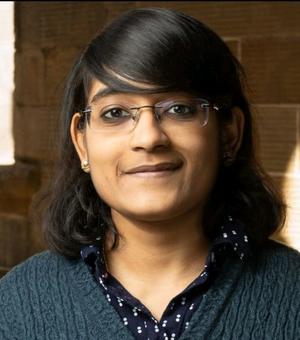Shivani Arulalan Pillai
Thesis Title: Writing Imperial Ruins: Interrogating Memory in Rohinton Mistry, Orhan Pamuk, and Svetlana Alexievich
Supervisor: Professor Pablo Mukherjee
Doctoral Research: My doctoral thesis offers a comparative study of the writers Rohinton Mistry (India and Canada), Orhan Pamuk (Turkey), and Svetlana Alexievich (Belarus) by deploying the theoretical framework developed by memory studies. First published in the 1980s, the three of them attend to the link between the imperial pasts and the authoritarian present of the regions they hail from in writings across the genres of realist fiction, historical novel, detective fiction, and testimony. I argue that an understanding of how memory works in the writings of Mistry, Pamuk, and Alexievich enables us to recover a ‘mnemohistoric’ narrative of the transition from imperialism to authoritarianism in India, Turkey, and Belarus and that the ambivalence characterising such a gesture—something that Assmann describes as “both a conscious choice and an unconscious burden” (51) becomes especially powerful through their depiction of imperial ruins of various kinds as sites of ‘living’ memory. These figures of ruins thus help to shed light on the post-imperial nostalgia characteristic of all three regions, suggesting that a clean break from the past is seldom, or almost never, possible. Importantly, reading the three writers in dialogue with each other allows me to explore memory, mnemohistory, and imperial ruination relationally across the three different levels of individual psychology (Alexievich), the community (Mistry), and the city (Pamuk), thereby affirming the potential of literary narratives to platform the confluence of the “historical recounted” (Ricoeur 390) and the “mnemonic experienced” (390) in language. Such a memory-informed comparative study of the three writers also invites comparisons of the distinct imperial pasts of the British colonial rule in India, the dynastic imperialism of the Ottoman Empire in Turkey, and the socialist imperialism of the USSR in relation to Belarus. These distinctions notwithstanding, the democratic Republics that emerged in these countries in the post-imperial aftermath all turned authoritarian (religious authoritarianism in India, secular modernity in Turkey, and totalitarianism in Belarus) in the name of nationalism—yet another comparison this thesis makes through the writers chosen.
Research Interests: Postcolonial and World Literatures, Cultural Memory Studies, Literatures in Translation, Life-Writing, Modern and Contemporary Literature. I also maintain an interest in the geopolitical histories of India, Turkey, and the post-Soviet states from the 1980s-present.
Teaching: I have experience teaching modern and contemporary literature and memory studies on the Visiting Student Programme (VSP) of Worcester College. I am open to teaching papers and supervising dissertations on literature from the 1900s onwards.
Public Engagement and Other Activities: From January to December 2024, I co-convened 'Ars Memoriae,' a TORCH critical thinking community, and I currently co-convene the OCCT Discussion Group, and I am also an Evening and Weekend Library Assistant at the Bodleian Social Science Library. When time permits, I research and write case studies for the Institute of Historical Justice and Reconciliation (IHJR) & EuroClio's Contested Histories project.
I can be found on LinkedIn.




